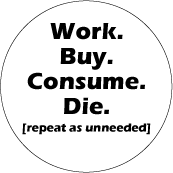God invented the eight hour day
But buy popular demand
Parently beyond what could ever be yearned
The ardor one tries
Only leaves won
With more or less
Wanting more our
In their daze
With each re-quest
First off with nine hours
Fallowed by ten
Bye and bye 11
12
13
14
15
16
17
18
19
And sow on and sow on
Till 24
As sum backward count
Down with freedom
Until divine enough
As full, filled with presents
This poem is a bit of storytelling regarding hour ever-present knead for more time in our daze. God is portrayed as a permissive parent granting immature children the never-enough request for more hours in the day. This poem is an object lesson about “divine enough,” where both God and humans have to set boundaries and limits to move from merely an adequate quantity of time to a full, filling quality of time.  The freedom we seek requires adequate time but can only be “enough” when we learn to experience a sufficient quality of time. This is the transcendent freedom emanating from mastery of experiencing the “eternal now.” Of course, humans need a certain amount of time suitable to their nature and the tasks before them. This poem plays with the notion that this amount of time may be somewhat arbitrary — a storytelling device to accentuate the governing importance of the quality of time — but humans were made, evolved befitting to a 24-hour day. And of note, in our weakly existence, God instituted a Sabbath day to set apart the wrest. Rest and re-creation are as integral to life as any work set before us. This poem first imagines God as creating an eight hour day. This is not arbitrary. The eight hour day alludes to the successful workers’ movement in response to nearly unimaginably exhausting work schedules: “In 1890, when the government first tracked workers’ hours, the average workweek for full-time manufacturing employees was 100 hours and 102 hours for building tradesmen.”
The freedom we seek requires adequate time but can only be “enough” when we learn to experience a sufficient quality of time. This is the transcendent freedom emanating from mastery of experiencing the “eternal now.” Of course, humans need a certain amount of time suitable to their nature and the tasks before them. This poem plays with the notion that this amount of time may be somewhat arbitrary — a storytelling device to accentuate the governing importance of the quality of time — but humans were made, evolved befitting to a 24-hour day. And of note, in our weakly existence, God instituted a Sabbath day to set apart the wrest. Rest and re-creation are as integral to life as any work set before us. This poem first imagines God as creating an eight hour day. This is not arbitrary. The eight hour day alludes to the successful workers’ movement in response to nearly unimaginably exhausting work schedules: “In 1890, when the government first tracked workers’ hours, the average workweek for full-time manufacturing employees was 100 hours and 102 hours for building tradesmen.”  The eight hour movement’s slogan was “Eight hours for work, eight hours for rest and eight hours for what you will.” This movement was deeply rooted in the hard work and sacrifice — boundary setting — necessary to respect our human nature and human rights. The defining moment in this movement, the birth-pangs of American labor, were police killings of strikers:
The eight hour movement’s slogan was “Eight hours for work, eight hours for rest and eight hours for what you will.” This movement was deeply rooted in the hard work and sacrifice — boundary setting — necessary to respect our human nature and human rights. The defining moment in this movement, the birth-pangs of American labor, were police killings of strikers:
“On the evening of May 4, 1886, thousands of workers gathered in Chicago’s Haymarket Square to protest against the police killing of six strikers that had taken place a day earlier. As the rally wound down, a bomb exploded among a phalanx of policemen who had moved in to disperse the crowd. In the ensuing melee, seven policemen and an unknown number of civilians died.
The ‘Haymarket riot’ triggered the first American red scare. Media reporting was one-sided and vitriolic. Even though most casualties resulted from policemen’s bullets, the event was used to condemn the labor movement and its cause. Authorities quickly moved to pin blame for the event on Chicago’s working class anarchist leaders, who were arrested, tried, and convicted in a case that made a mockery of jurisprudence.
After the trial, an international campaign was waged for reversal of the death sentences, led by literary figure William Dean Howells, a close friend of Mark Twain. Of the eight defendants, four were hung on “Black Friday,” November 11, 1887: Albert Parsons, August Spies, Adolph Fischer and George Engel.
 Haymarket is of enormous historical significance. It was the bloody culmination of the eight-hour-day movement, which had mobilized hundreds of thousands of American workers. And it was the direct origin of May 1 as the international holiday of the working class—celebrated virtually everywhere but in the land of its inspiration, the US.”
Haymarket is of enormous historical significance. It was the bloody culmination of the eight-hour-day movement, which had mobilized hundreds of thousands of American workers. And it was the direct origin of May 1 as the international holiday of the working class—celebrated virtually everywhere but in the land of its inspiration, the US.”
The trinity of work, leisure and sleep may be rooted in our human nature, yet there are many who would rob us of such a birthright. The struggle continues in our culture of busyness and work/money as the alleged determiners of our identity and worth. May we find a more balanced way, in harmony with our nature. And in each moment, may you “divine enough/As full, filled with presents.”


